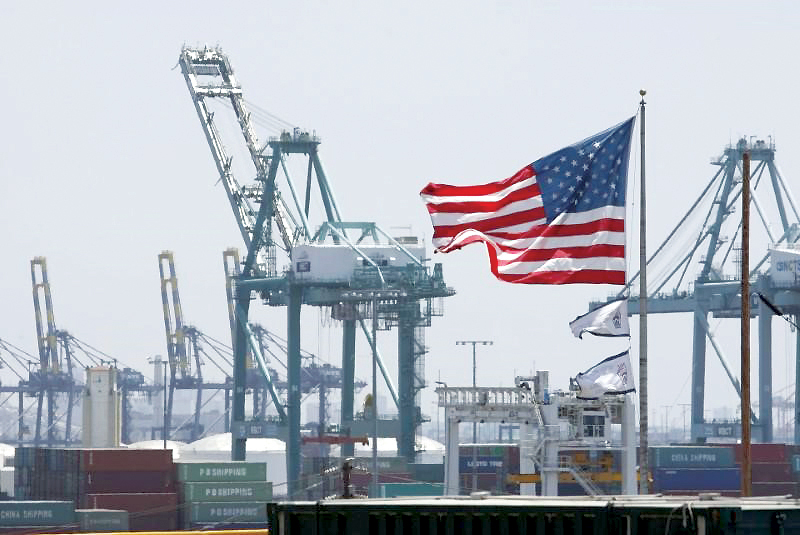

WASHINGTON: Tariff-driven price increases have spread more broadly through the US economy, though on balance inflation has risen at a modest pace in most parts of the country, the Federal Reserve said on Wednesday in its latest report on the economy.
The US central bank’s “Beige Book” report, a snapshot of the economy gleaned from discussions with business contacts in the Fed’s 12 districts in the weeks through November 26, also said that the economy appeared to be growing modestly to moderately.
While a wide range of businesses cited concerns about the effects of a trade war between the United States and China, firms continued to hire and reported bumping up benefits and pay to compete for an increasingly scarce labour pool.
Labour markets tightened across a broad range of industries, and wage growth “tended to the higher side of a modest to moderate pace,” the Fed said.
In the Minneapolis Federal Reserve Bank’s district, “labour availability was widely seen as the biggest obstacle to short-term growth,” according to the Beige Book.
The dollar held onto slim gains after the report was released.
The Fed is widely expected to raise interest rates at the close of its December 18-19 policy meeting. Policymakers have said the United States’ strong economy could stoke higher inflation if they do not raise borrowing costs further.
At the same time, Fed Chairman Jerome Powell has signalled the Fed’s three-year tightening cycle is drawing to a close and central bankers are looking for signs a global growth slowdown and a US-China trade war might be weighing on the US economy.
The Beige Book report highlighted the developing risks that Fed officials have begun citing more frequently as they plan how far to continue their rate increase cycle.
“Reports of tariff-induced cost increases have spread more broadly from manufacturers and contractors to retailers and restaurants,” the Fed said.
President Donald Trump has slapped tariffs on hundreds of Chinese imports, prompting retaliation against US exports.
The Fed said incomes and conditions in the agricultural sector, which has born the brunt of Chinese retaliatory tariffs, were “mixed,” hit by tariffs and excessive rainfall.
Chinese tariffs have disrupted America’s massive soybean industry, with large shipments of beans wandering US waterways instead of heading for China. In the St. Louis Federal Reserve Bank’s district, “local contacts note that barge activity has increased due to the large number of storage barges for soybeans affected by recent tariffs.” — Reuters
Oman Observer is now on the WhatsApp channel. Click here



